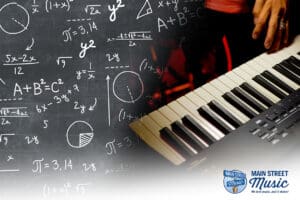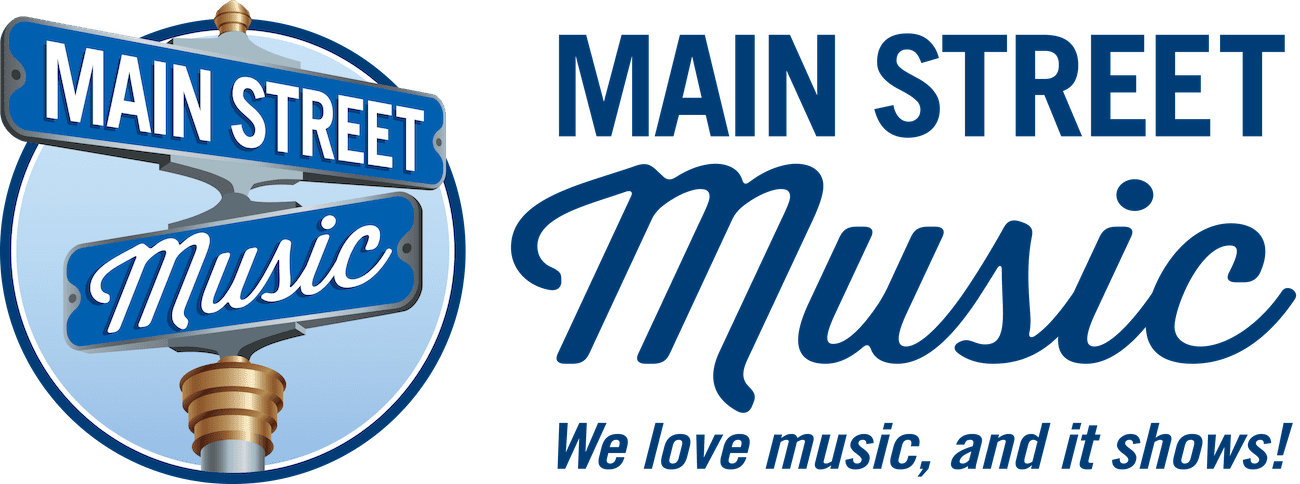Correlation Between Music and Math: How Music Boosts Math Skills
 From Mozart to modern classrooms, the correlation between music and math has intrigued educators and researchers for generations. Countless studies have uncovered compelling evidence for the correlation between music and math—and it’s more than just a catchy theory. When young students participate in music, whether through singing, reading notation or learning an instrument, their mathematical abilities tend to improve significantly. But why does this connection exist, and how can parents and educators use this knowledge to support student success?
From Mozart to modern classrooms, the correlation between music and math has intrigued educators and researchers for generations. Countless studies have uncovered compelling evidence for the correlation between music and math—and it’s more than just a catchy theory. When young students participate in music, whether through singing, reading notation or learning an instrument, their mathematical abilities tend to improve significantly. But why does this connection exist, and how can parents and educators use this knowledge to support student success?
In this article, we’ll explore the deep ties between music and mathematics, how music education enhances brain development, and how you can support a child’s musical journey without breaking the bank. If you’re looking for affordable instruments and expert guidance for youth or beginner musicians, look no further than Main Street Music, your locally owned music store dedicated to nurturing musical growth at every level.
Understanding the Correlation Between Music and Math
To the casual observer, music and math might seem like two completely different disciplines—one rooted in creativity and emotion, the other grounded in logic and numbers. Yet, they share a foundational relationship that’s hard to ignore.
Music is built on patterns, ratios, and rhythm, all of which are mathematical concepts. Reading sheet music involves understanding fractions (such as quarter notes and eighth notes), measuring time (beats per measure), and recognizing sequences and patterns. When students engage with music, they actively practice these mathematical principles practically and enjoyably.
For example, when a young drummer keeps a steady beat or a pianist counts intervals between notes, they reinforce mathematical concepts such as division, addition, spatial awareness, and sequencing. This kinesthetic reinforcement helps solidify abstract math principles in a concrete, accessible format.
Brain Development: Music Builds Cognitive Bridges
One of the most compelling arguments for introducing youth to music is its impact on brain development. According to neuroscientific research, learning to play a musical instrument activates multiple regions of the brain simultaneously, especially areas associated with mathematical reasoning.
In a landmark study by Dr. Frances Rauscher at the University of Wisconsin, students who received piano lessons performed significantly better on spatial-temporal tasks (crucial for solving math problems) than their non-musical peers. Subsequent studies have supported this finding, showing that musical training improves memory, attention, and problem-solving skills.
The auditory skills developed through music education—such as discriminating between pitch, rhythm, and tempo—also translate to better numerical processing and pattern recognition. Music doesn’t just complement math learning—it enhances the brain’s capacity to think mathematically.
Early Music Education Leads to Long-Term Math Success
Research has shown that the earlier a child begins musical training, the more significant the long-term benefits in math and other academic subjects. Young children exposed to music consistently outperform their peers in standardized math tests and exhibit stronger cognitive development overall.
This doesn’t mean a child must become a professional musician to reap the rewards. Even beginner-level exposure to music—such as participating in school band or taking weekly lessons—can have a lasting positive effect on mathematical thinking.
Moreover, music education teaches discipline, patience, and perseverance. These skills are crucial for solving complex math problems that require attention to detail and sustained mental effort. When students see progress in learning an instrument, they gain confidence that can spill over into other academic areas, including math.
Making Music Accessible: Why Main Street Music is the Best Place to Start
The correlation between music and math is powerful, supported by decades of research and the real-world success of students who embrace both disciplines. By encouraging young people to engage in music, we open the door to creative expression and pave the way for academic excellence in subjects like mathematics.
One barrier often preventing parents from enrolling their children in music lessons is the perceived cost of instruments and equipment. At Main Street Music, we believe every child deserves the opportunity to explore music, no matter their budget.
Main Street Music offers a wide range of affordable instruments for youth and beginner musicians, including rentals, used instruments, and budget-friendly starter kits. Whether your child wants to try the trumpet, flute, violin, keyboard, or drums, our expert team can help you find the perfect fit.
We also work closely with local school music programs and provide expert guidance to ensure students have the tools to succeed. Our inventory includes trusted brands such as Yamaha and Eastman, which are known for their durability, playability, and value. And for parents unsure about what to buy, our friendly staff is always available to answer questions and offer professional advice.
Supporting your child’s interest in music isn’t just an investment in their creativity—it’s an investment in their academic future. Stop by Main Street Music today or visit www.themainstreetmusic.com to explore our selection of instruments and discover how music can impact your child’s education—especially in math. Let the music—and the math—begin.
